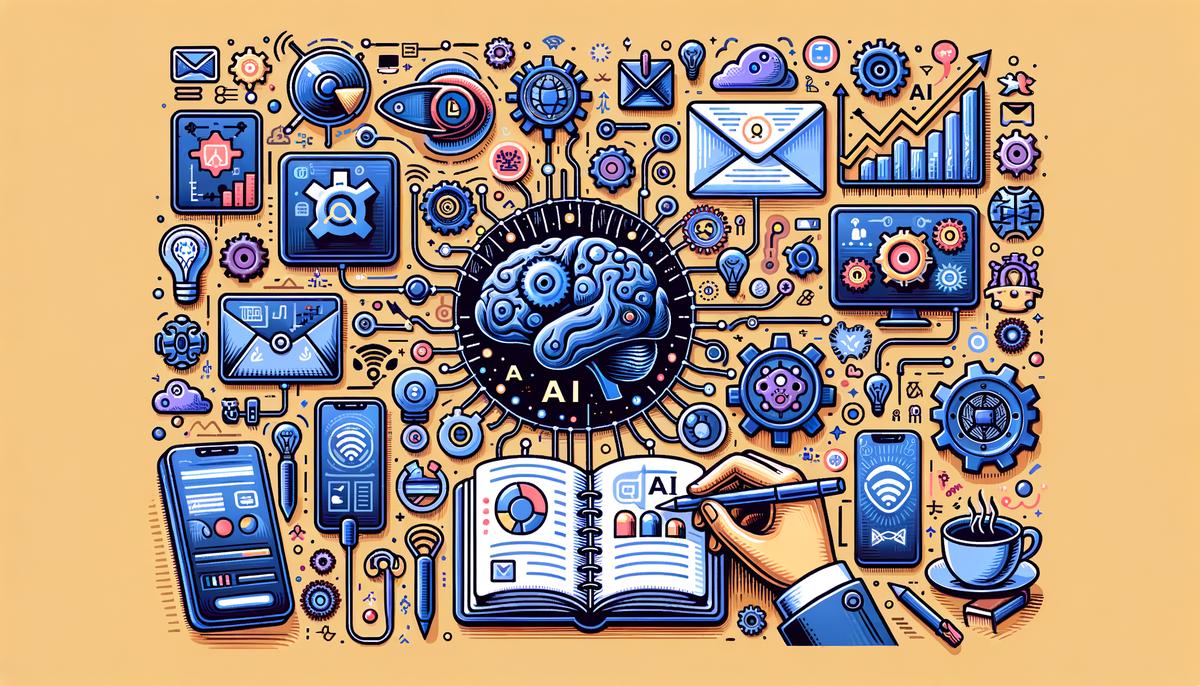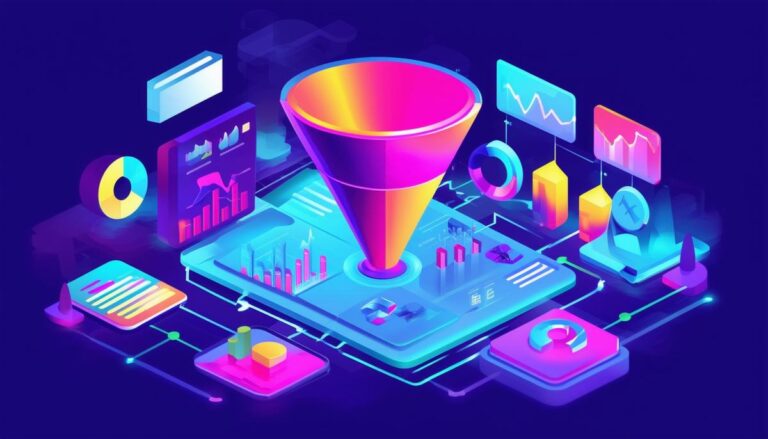Artificial Intelligence (AI) is steering the marketing industry towards unprecedented realms, transforming how businesses understand and engage with their audiences. As AI reshapes the landscape of marketing, it promises a future of personalized experiences, efficient customer service, and innovative strategies that align closely with consumer behaviors and preferences. This exploration seeks to unpack the profound impact of AI on marketing, highlighting the advancements and considering the ethical dimensions of its application.
Understanding AI in Marketing
How AI is Revolutionizing the Marketing World
Ever wonder why you see ads online that seem to read your mind? Welcome to the magic of AI in marketing! Gone are the days of shooting in the dark. Today, we’re talking about how AI is shaking things up for marketers and businesses alike, making campaigns smarter, more targeted, and way more effective. Let’s dive in.
First up, personalized marketing. AI algorithms are the wizards behind the curtain, analyzing your browsing habits, purchases, and even social media activity. This means companies can serve you ads that are so spot on, you’d think they’ve been reading your diary. From suggesting the perfect pair of shoes to the ideal holiday destination, AI makes it happen.
Next, let’s talk about chatbots. These aren’t your typical robotic, frustrating customer service experiences. Modern chatbots, powered by AI, are like talking to a friend who knows all the answers. They’re on websites and social media, ready to assist, making customer service fast, efficient, and available 24/7. Plus, they learn from every interaction, constantly improving to better serve you.
Content creation, too, has been transformed by AI. Now, AI tools can draft basic articles, create ad copies, and even generate images. For marketers, this means cranking out content at record speed. It’s not just about volume, though. These tools are getting smarter, making content more relevant and engaging for the audience.
AI doesn’t just stop with ads and content; it’s revolutionizing email marketing as well. Those personalized product recommendations and special offers popping up in your inbox? AI’s work. It analyzes your past behavior to predict what you’ll likely engage with next, making emails you receive feel tailor-made for you.
Finally, AI is the new crystal ball of marketing, offering predictive analysis. This means companies can forecast trends, understand customer behavior better, and make informed decisions about where to invest their marketing dollars. It’s like having a roadmap for success, reducing the guesswork and boosting ROI.
In the race to capture consumer attention, AI is the turbo boost marketing needed. It’s not just about bombarding people with ads anymore. It’s about creating meaningful, personalized experiences that resonate with individuals. From the small startup to the big guns, businesses leveraging AI in their marketing strategies are those leading the pack.
So, there you have it. AI is not just transforming the marketing landscape; it’s revolutionizing the way businesses connect with us, making every interaction more personal, efficient, and engaging. And in this ever-competitive world, that’s not just smart; it’s essential. Ready to see where AI takes us next in the world of marketing? The future sure looks exciting!
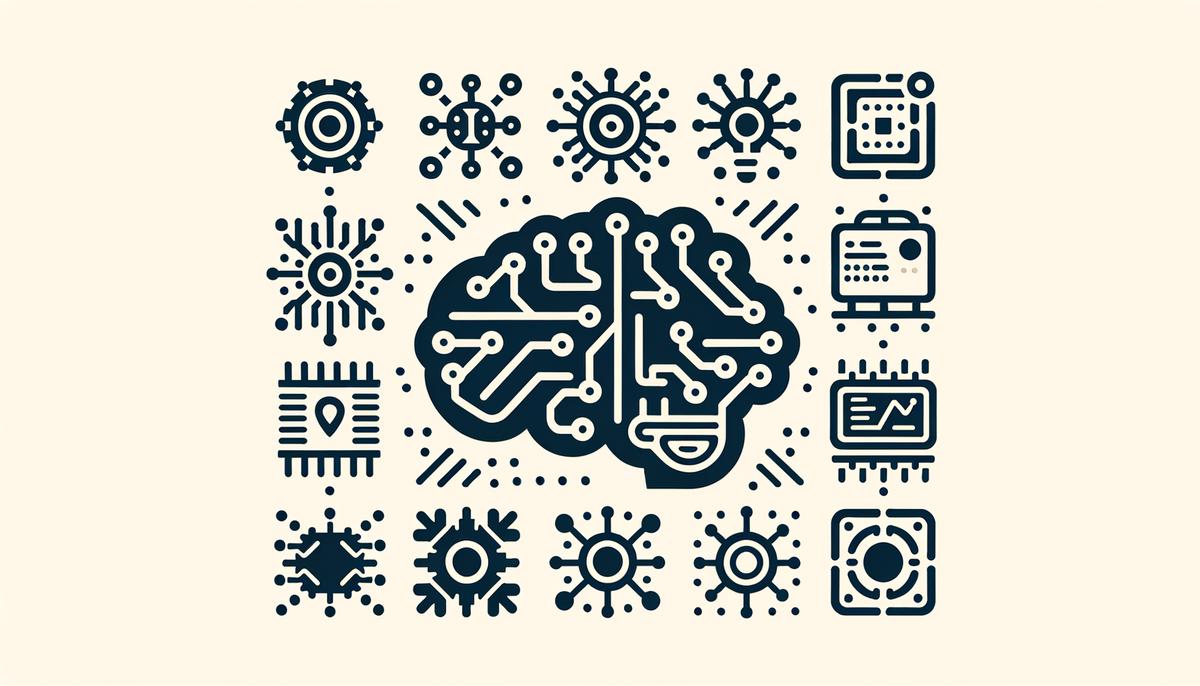
AI-Driven Content Creation
Can AI truly master the art of content creation? This is a question on the minds of many as we dive deeper into the digital age. Artificial Intelligence has already made significant strides in various fields, from customer service to more creative endeavors. But when it comes to content creation, the intricacies involved raise doubts about AI’s capabilities to fully grasp and replicate the human touch.
First off, let’s look into storytelling. Humans are natural-born storytellers, weaving emotions, experiences, and personal touch into tales that captivate and engage. While AI can generate stories based on algorithms and datasets, the question remains: can it mimic the depth of human emotion and the nuanced storytelling that resonates on a personal level?
Search Engine Optimization (SEO) is another crucial aspect of content creation where AI plays a significant role. AI tools can analyze trends, suggest keywords, and even optimize articles for better search engine rankings. However, creating content that strikes the perfect balance between SEO and reader engagement still requires a human touch. Keywords might get traffic to your page, but keeping readers engaged and coming back requires content that’s not only informative but also compelling and relatable.
Visual Content Creation is an area where AI has shown promise. From generating images to creating video content, AI tools are becoming more sophisticated. However, the creative decision-making process, understanding of visual trends, and the ability to convey a specific emotion or message through visual content still heavily rely on human creativity and intuition.
Interactive Content, such as quizzes, polls, and interactive infographics, can be generated by AI to a certain extent. Yet, crafting interactive elements that truly engage users, evoke emotions, and encourage sharing involves understanding human psychology, something AI is yet to fully grasp.
Lastly, ethical considerations and cultural sensitivity in content creation cannot be overlooked. AI might not always distinguish between right and wrong or understand the cultural nuances that could make or break the success of content in different parts of the world. Humans, with their ability to empathize and evaluate the potential impact of content, play a crucial role in ensuring content is responsible and culturally appropriate.
While AI continues to evolve and improve, the essence of content creation lies in the ability to connect, empathize, and engage on a human level. AI can certainly assist in the process, speeding up research, offering insights, and even generating preliminary content drafts. However, the depth, creativity, and emotional intelligence required to truly master content creation remain uniquely human traits. As we move forward, the synergy between human creativity and AI’s capabilities might just be the sweet spot in crafting content that informs, engages, and inspires.
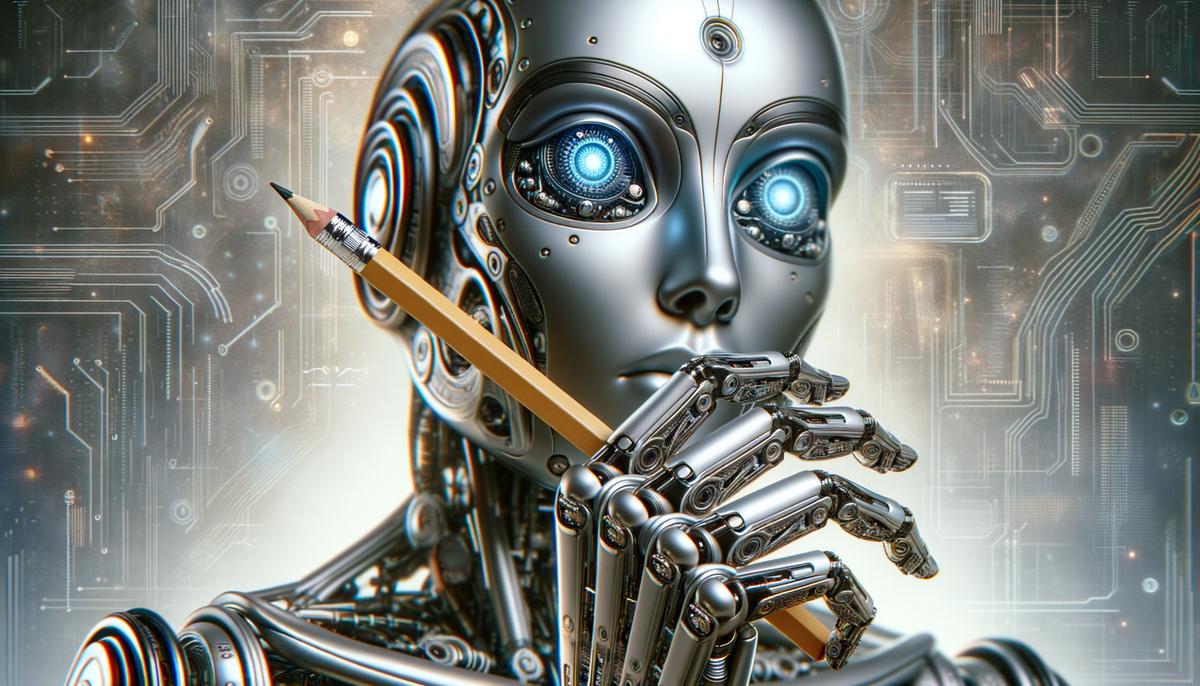
Personalized Marketing with AI
How AI Enhances Customer Experience Through Hyper-Personalization in Marketing
In the vast ocean of marketing strategies that flood our digital lives, standing out becomes a real challenge for brands. This is where AI steps into the spotlight, offering a solution through hyper-personalization. It’s like having a digital concierge that knows you better than you know yourself, guiding you to your interests and needs seamlessly.
Hyper-personalization goes beyond the basic “insert name here” approach in emails. AI analyzes heaps of data – from browsing habits to purchase history, social media interactions, and beyond – to deliver a marketing experience tailored to the individual on an unprecedented level. It’s not just about selling a product; it’s about creating a connection that feels genuine and personal.
Data is the fuel that powers AI in marketing. Every click, view, like, and share is a piece of the puzzle that AI uses to understand consumer behaviors and preferences. With advanced algorithms, AI sifts through this data in real time, making sense of patterns that would take humans ages to decode. This enables marketers to deliver content and offers that resonate on a personal level, at precisely the right moment.
One of the key areas where AI’s hyper-personalization shines is in recommendation engines. You’ve likely encountered this with streaming services suggesting shows you might like or eCommerce sites recommending products. These recommendations are not random; they’re carefully curated by AI analyzing your past interactions and predicting what you might enjoy next. This not only enhances the user experience but also increases the likelihood of conversion.
Customer support is another arena revolutionized by AI and hyper-personalization. Remember chatbots? They’re getting smarter. AI-powered chatbots can now provide personalized assistance, answering queries, providing recommendations, and solving problems based on the user’s history and preferences. This level of personalized support was unthinkable a few years ago but is becoming the new standard, thanks to AI.
Moreover, AI has a significant impact on ad targeting. With its ability to parse through complex datasets, AI enables marketers to identify and target very specific segments of their audience with messages crafted specifically for them. This reduces the wastage of marketing resources on uninterested parties and improves the efficiency of advertising campaigns, ensuring that the right eyes see the right ads.
But it’s not all sunshine and rainbows. The power of AI in hyper-personalization comes with a hefty responsibility. Privacy concerns are at the top of the list, as consumers become increasingly wary of how their data is collected and used. Brands must navigate these waters carefully, ensuring transparency and securing consumer trust, all while delivering personalized experiences.
To wrap it up, AI is fundamentally reshaping the marketing landscape through hyper-personalization. It offers a level of precision and effectiveness in targeting and engaging customers that was once thought impossible. As technology continues to evolve, so too will the ways in which marketers can leverage AI to connect with their audience on a deeply personal level. The future of marketing is not just about reaching customers; it’s about understanding them. And with AI, that future is now.
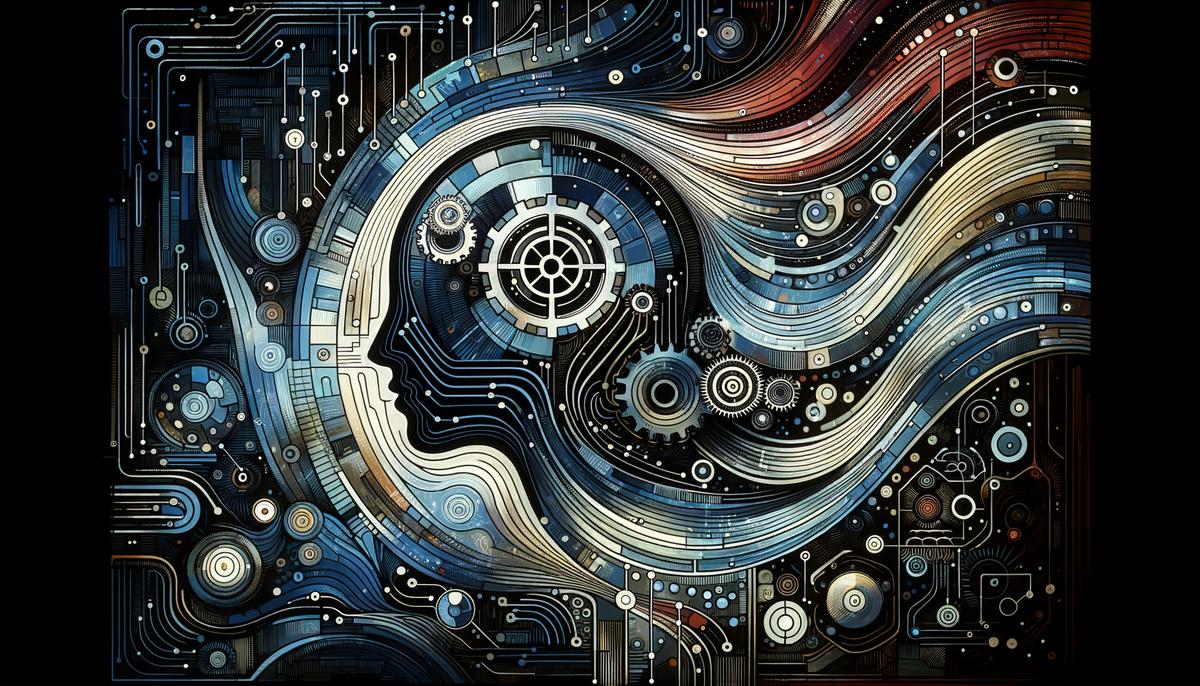
Challenges and Ethical Considerations
Navigating the Complex Landscape of AI in Marketing: A Closer Look at Challenges and Ethical Dilemmas
The integration of Artificial Intelligence (AI) in marketing has transformed the way brands interact with their audience, offering opportunities for innovation and efficiency like never before. However, this technological advancement doesn’t come without its set of challenges and ethical dilemmas. Today, we dive into some of the pressing issues surrounding AI in marketing, focusing on areas that have not been widely discussed yet.
Consumer Trust and Data Security
One of the primary concerns with AI in marketing is maintaining consumer trust, especially when it comes to data security. With AI systems processing vast amounts of personal information to deliver targeted ads and personalized experiences, there’s a fine line between personalization and intrusion. The risk of data breaches and misuse of information poses serious questions about the security measures in place and the ethical responsibility companies have to protect their users’ data.
Transparency and Consent
Related to the issue of trust is the matter of transparency and consent. How much do consumers really know about the AI systems that analyze their data and influence their buying decisions? Companies must navigate the challenge of being transparent about the use of AI in their marketing strategies while ensuring that they obtain explicit consent from users. This involves clearly communicating what data is being collected, how it’s being used, and giving consumers the option to opt-out if they choose.
Bias and Fairness
AI systems are only as unbiased as the data they’re trained on. Historical data can contain implicit biases, leading AI algorithms to perpetuate or even amplify these biases in marketing campaigns. This raises significant ethical dilemmas regarding fairness and discrimination. For instance, if an AI-driven marketing strategy unintentionally targets certain demographics over others, it could lead to unequal treatment or representation. Addressing bias in AI requires a commitment to diversity in data collection and continuous monitoring for fairness.
The Impact on Jobs
While AI can automate many aspects of marketing, from content creation to customer service, this efficiency comes with concerns about the impact on jobs. The fear that AI may replace human roles in marketing departments is real, bringing to the forefront the ethical dilemma of balancing technological advancement with job preservation. Companies must consider how to integrate AI into their operations in a way that complements human skills and creativity rather than replacing them.
Maintaining Authentic Human Connections
Finally, amidst the automation and personalization capabilities of AI, there’s a challenge in maintaining authentic human connections. While AI can analyze data and predict behavior, it lacks the ability to truly understand human emotions and nuances. The dilemma here is ensuring that marketing strategies don’t become so reliant on AI that they lose the human touch essential for building genuine relationships with consumers.
As we’ve explored, the intersection of AI and marketing is fraught with challenges and ethical dilemmas. From ensuring data security to maintaining human connections, companies venturing into AI-driven marketing must navigate these issues with care and responsibility. The goal should be to leverage AI’s power to enhance marketing strategies while upholding the highest ethical standards, ensuring that innovation benefits both brands and consumers without compromising trust or privacy.
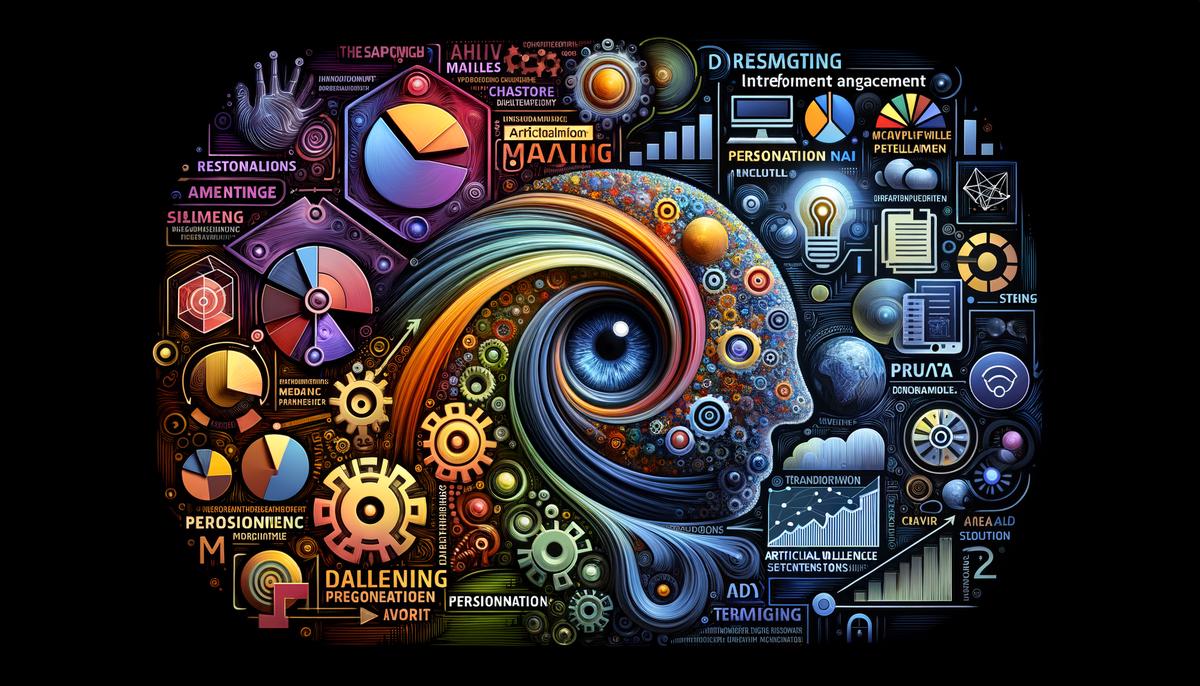
The Future of AI in Marketing
The future of AI in the marketing domain is not just about the technologies we’re familiar with today, such as chatbots and personalized ads. It’s about pushing boundaries, exploring new territories, and how these innovations will shape the way we connect with consumers. Let’s dive into some fresh perspectives on what’s next for AI in marketing, tracking uncharted paths and anticipating future trends.
Voice and Conversational AI: With the rise of smart speakers and voice assistants, voice search and voice-activated commands are becoming a staple in consumer habits. Marketers will need to adapt content for voice search optimization, making sure their brands can easily be found via these new channels. But it goes beyond search; conversational AI can facilitate a more natural interaction between brands and consumers, making engagements feel more personal and immediate.AI-Driven Augmented Reality (AR) Experiences
: Imagine trying on clothes virtually through an app or visualizing how a piece of furniture would look in your room before making a purchase. AI-driven AR is making these experiences more sophisticated and personalized. For marketers, this means creating immersive and interactive campaigns that can significantly enhance the consumer decision-making process and foster a deeper brand connection. Behavioral Predictions Evolving into Behavioral Influence: While predictive analytics help marketers understand potential future actions of consumers, the next step is actively influencing those behaviors in ethical ways. This involves crafting personalized incentives and nudges within the consumer journey, powered by AI’s understanding of individual preferences and behaviors.- Integration of AI in CRM Systems
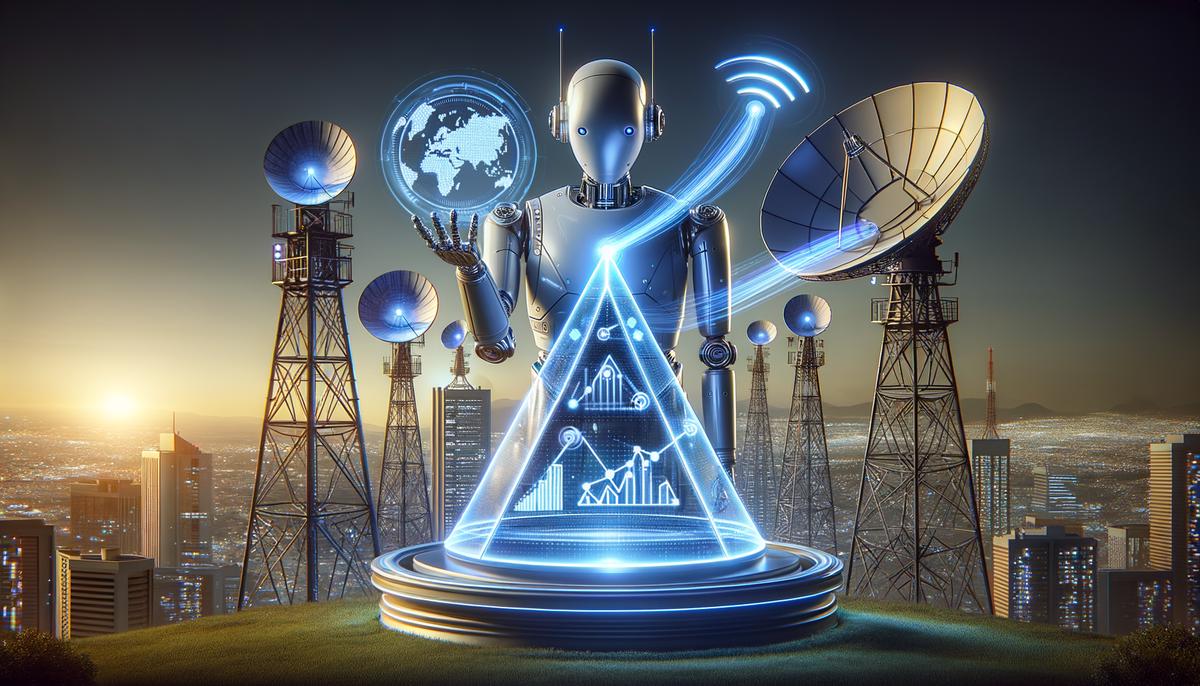
As we examine the evolving role of AI in marketing, it’s clear that its influence extends far beyond automating tasks or analyzing data. AI is setting the stage for a new era of marketing, one that emphasizes personal connection, creativity, and ethical responsibility. By combining human insight with the analytical power of AI, marketers have the opportunity to forge deeper relationships with their audience, tailoring experiences that resonate on a personal level. As AI continues to evolve, its potential to revolutionize marketing practices is boundless, promising a future where technology enhances the human aspect of brand-consumer interactions. Embracing this shift, marketers are not just adapting to changes; they are shaping a future where engagement, innovation, and integrity are at the forefront.

